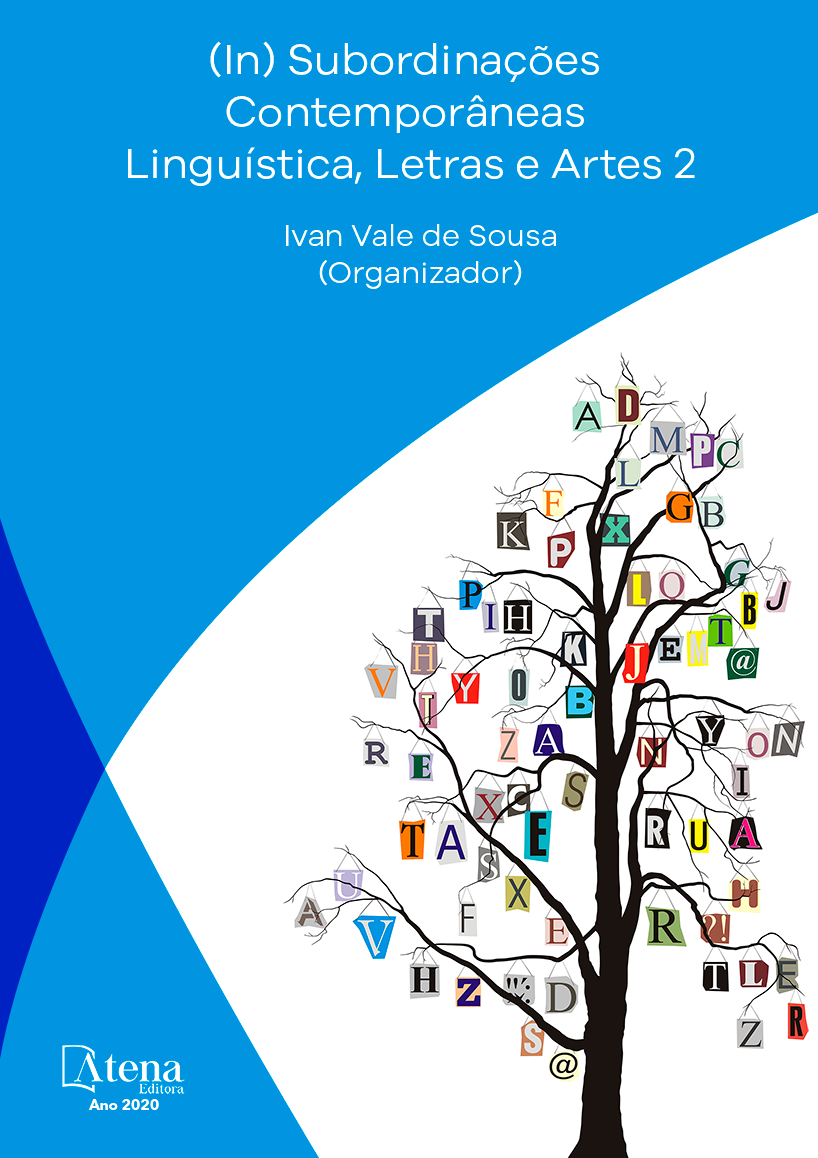
DANÇAS AFRO-BRASILEIRAS E DE MATRIZ AFRICANA: A ABP E UMA PROPOSTA DE PROJETO INTERDISCIPLINAR NO ENSINO FUNDAMENTAL II
A lei 10. 639/03 tornou obrigatório
o estudo da História e Cultura Afro-brasileira
e Africana nas escolas, mas para além dessa
obrigatoriedade este trabalho baseia-se na
importância e na relevância que os negros
africanos tiveram para a formação da cultura
e também da arte brasileira. O objetivo geral
da pesquisa é propor um método de ensino
e aprendizagem por meio das danças afrobrasileiras
dos conteúdos que envolvem Brasil
(a formação do seu povo e da sua cultura) e
os laços de parentesco com a África. É uma
proposta de projeto e estudo interdisciplinar
a ser desenvolvido em turmas do Ensino
Fundamental II (6º ao 9º ano), nas aulas dos
componentes curriculares de Artes, História e
Geografia. Para alcançar o objetivo utiliza-se a
pesquisa e o levantamento bibliográfico (SILVA,
2009). Ao longo do trabalho aborda-se o tema a
partir de três eixos norteadores: herança negroafricana:
escravidão, cultura, miscigenação e
arte; a técnica e a estética nas danças afrobrasileiras
e de matriz africana; o método da
ABP e a proposta de projeto interdisciplinar.
Trata-se apenas do início de uma pesquisa
que ainda deverá ser colocada em prática no
chão da escola. É um esboço do que acreditase
ser uma proposta viável em qualquer escola
de qualquer região ou lugar do Brasil, visto que
independentemente da cor da pele, da religião,
da culinária, do sotaque ou do folclore cada
cidadão brasileiro traz em seu DNA um “quê”
de África. Mesmo que não (se)reconheça.
DANÇAS AFRO-BRASILEIRAS E DE MATRIZ AFRICANA: A ABP E UMA PROPOSTA DE PROJETO INTERDISCIPLINAR NO ENSINO FUNDAMENTAL II
-
DOI: 10.22533/at.ed.18820280231
-
Palavras-chave: Danças afro-brasileiras e de matriz africana. Ensino e aprendizagem. Interdisciplinaridade. Aprendizagem Baseada em Problemas.
-
Keywords: Afro-brazilian and african matrix dances. Teaching and learning. Interdisciplinarity. Problem Based Learning.
-
Abstract:
Law 10. 639/03 made the study
of Afro-Brazilian and African History and
Culture compulsory in schools, but beyond this
obligation this work is based on the importance
and relevance that black Africans had for the
formation of culture and also of Brazilian art. The
general objective of the research is to propose
a teaching and learning method through the
Afro-Brazilian dances of the contents that
involve Brazil (the formation of its people and
its culture) and the kinship ties with Africa. It is a project proposal and interdisciplinary
study to be developed in classes of Elementary School II (6th to 9th grade), in classes
of curricular components of Arts, History and Geography. To reach the objective, the
research and the bibliographic survey are used (SILVA, 2009). Throughout the work the
theme is approached from three guiding axes: black-african heritage: slavery, culture,
miscegenation and art; the technique and aesthetics in Afro-Brazilian and African matrix
dances; the PBL method and the proposed interdisciplinary project. This is just the
beginning of a research that should still be put into practice on the school floor. It is an
outline of what is believed to be a viable proposition in any school in any region or place
in Brazil, as regardless of skin color, religion, cuisine, accent or folklore each Brazilian
citizen brings in their DNA a “What” from Africa. Even if you don’t (recognize) yourself.
-
Número de páginas: 18
- Joana Maria Santana Torres


